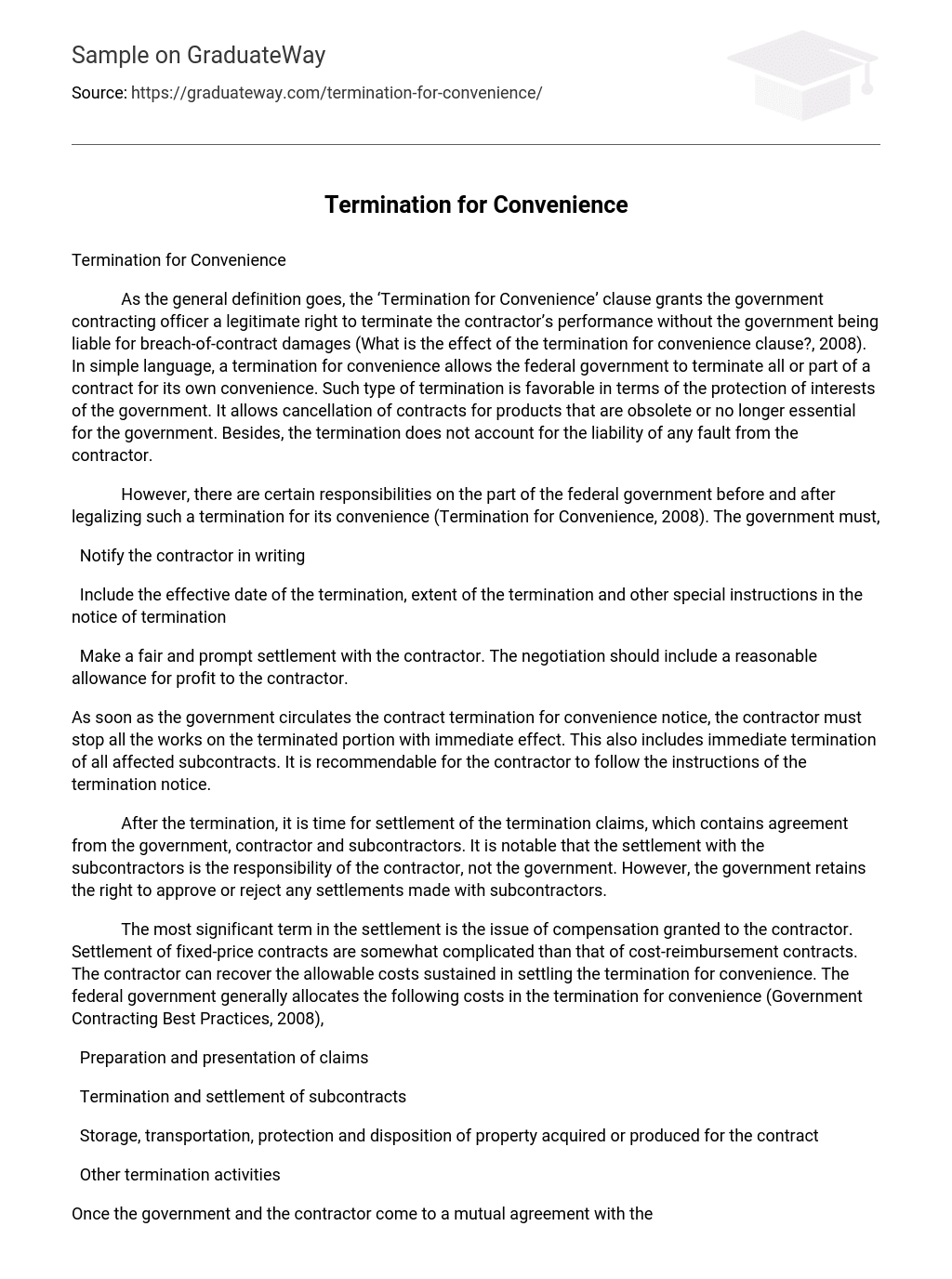As the general definition goes, the ‘Termination for Convenience’ clause grants the government contracting officer a legitimate right to terminate the contractor’s performance without the government being liable for breach-of-contract damages (What is the effect of the termination for convenience clause?, 2008). In simple language, a termination for convenience allows the federal government to terminate all or part of a contract for its own convenience. Such type of termination is favorable in terms of the protection of interests of the government. It allows cancellation of contracts for products that are obsolete or no longer essential for the government. Besides, the termination does not account for the liability of any fault from the contractor.
However, there are certain responsibilities on the part of the federal government before and after legalizing such a termination for its convenience (Termination for Convenience, 2008). The government must,
? Notify the contractor in writing
? Include the effective date of the termination, extent of the termination and other special instructions in the notice of termination
? Make a fair and prompt settlement with the contractor. The negotiation should include a reasonable allowance for profit to the contractor.
As soon as the government circulates the contract termination for convenience notice, the contractor must stop all the works on the terminated portion with immediate effect. This also includes immediate termination of all affected subcontracts. It is recommendable for the contractor to follow the instructions of the termination notice.
After the termination, it is time for settlement of the termination claims, which contains agreement from the government, contractor and subcontractors. It is notable that the settlement with the subcontractors is the responsibility of the contractor, not the government. However, the government retains the right to approve or reject any settlements made with subcontractors.
The most significant term in the settlement is the issue of compensation granted to the contractor. Settlement of fixed-price contracts are somewhat complicated than that of cost-reimbursement contracts. The contractor can recover the allowable costs sustained in settling the termination for convenience. The federal government generally allocates the following costs in the termination for convenience (Government Contracting Best Practices, 2008),
? Preparation and presentation of claims
? Termination and settlement of subcontracts
? Storage, transportation, protection and disposition of property acquired or produced for the contract
? Other termination activities
Once the government and the contractor come to a mutual agreement with the compensation claim, a written amendment or settlement agreement is formally made to the contract. Generally, termination for convenience discontinues regular payments to a contractor under the contract. However, most termination clauses grant provisional financing for finished or unfinished products, materials and manpower through partial payments.
References
Government Contracting Best Practices (27 July 2007). ONVIA. Retrieved from http://government.onvia.com/?p=192
Termination for Convenience (2008). Toolkit Media Group. Retrieved from http://www.toolkit.com/small_business_guide/sbg.aspx?nid=P09_3310
What is the effect of the termination for convenience clause? (2008). Free Advice. Retrieved from http://law.freeadvice.com/government_law/public_contracts/termination_for_convenience.htm





